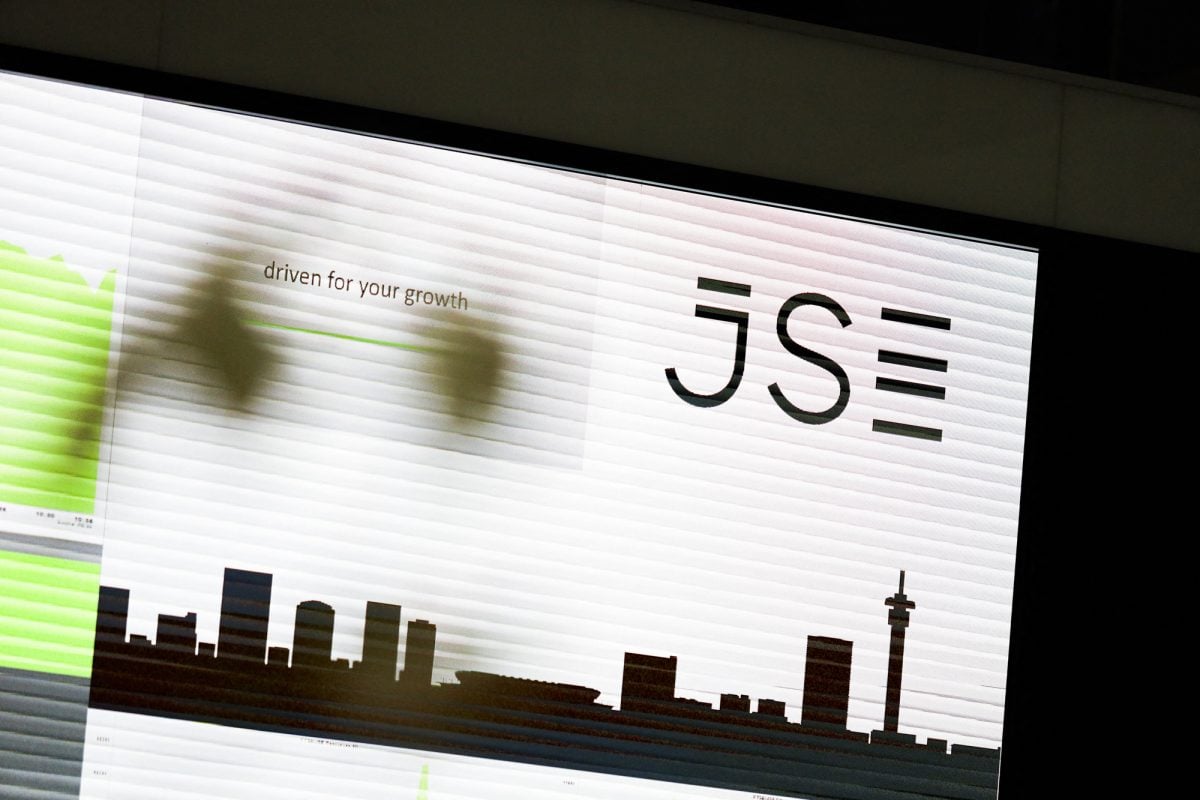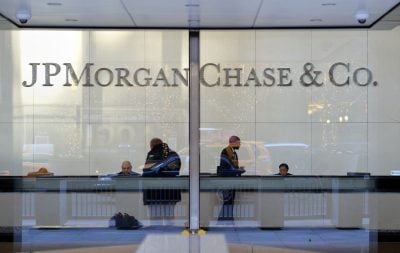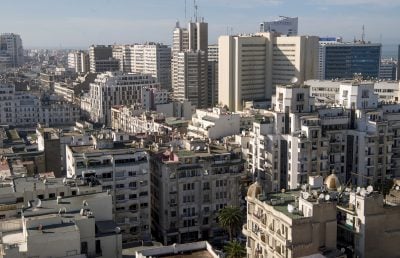From the boom-and-bust of the Gold Rush to the diversity and dynamism of the post-apartheid economy, the Johannesburg Stock Exchange (JSE) has always occupied a central place in South African corporate life – and stood as a crucial bellwether of the country’s economic performance. When the economy struggles – as it has in recent years – corporate activity on the JSE palpably slows. In 2023, as the country’s electricity crisis deepened and GDP growth stuttered along at just 0.6%, the exchange saw eleven delistings and just two new listings, according to data from Bloomberg.
And yet, despite the challenges of recent years, the mood at the JSE’s Sandton headquarters was buoyant even before May’s dramatic election that brought the pro-market Democratic Alliance into a government of national unity with the ANC.
“Let’s start with the positives. It absolutely feels a lot better than where we’ve come from, probably from the last five years, but definitely from the last 24-36 months,” Valdene Reddy, director of capital markets at the JSE, told African Business before the election.
“South Africa is pretty sophisticated in many elements of our capital markets related to things like listings, but it’s hard to disassociate that from the macro [environment], which has been on the back foot probably for the last six years,” Reddy says, citing a familiar list of global and local challenges from Covid to the electricity crisis.
That pervasive sense of crisis, Reddy says, triggered long-awaited unity between the government and private sector and a willingness to change the status quo, even before the shock of polling day.
“Where we’re at now… is a vested interest in terms of people saying ‘we have to get it right.’ That’s why it feels a lot more optimistic – it’s not that there’s been a massive shift in things you can see on delivery, but the need has become more urgent and private-public sector collaboration has become more deliberate… some of the reforms and liberalisations we’ve seen from a government level have been quite bold and brave.”
IPOs return
Reddy’s pre-election optimism appears to have been vindicated by events. This year, the number of listed companies on the exchange has exceeded 280 with an overall market capitalisation exceeding R18.8 trillion. In March Powerfleet, a NASDAQ-listed AI and software firm, agreed a secondary listing on the JSE. In April, second-hand car platform WeBuyCars launched an IPO with a market capitalisation of around $441m. In late June, Rainbow Chicken listed with a $396m valuation as part of the process of being unbundled by its parent company, billionaire Johan Rupert’s consumer goods giant RCL Foods. In the same month, medical cannabis investment company Cilo Cybin listed on the JSE’s AltX Board as a special purpose acquisition vehicle (SPAC).
There may yet be more good news to come – earlier this year, JSE chief executive Leila Fourie anticipated as many as 10 listings in 2024. This could be helped along by an electoral outcome seen as broadly favourable to investors, and by the splitting of the JSE’s main board in a bid to retain and attract listings of smaller companies. Meanwhile, the JSE All-Share Index rose above 81,500 points in mid July, reaching record levels in the aftermath of the announcement of the unity government’s first cabinet.
“Where we’re sitting now is much more optimistic… We think we can attract capital,” Reddy says. “We still need to move the dial on tangible execution, to move the growth of South Africa from single digits to something more compelling, but the building blocks are in place. Where that brings us to in capital markets is we see a much healthier listings pipeline and that is quite good because we’ve seen a stagnant spot for quite a few years – not just in South Africa. Globally, other than a few pockets and sectors in the US, Saudi and India, you haven’t seen a buoyancy in public markets capital, so what you see now is the resurrection of that… The pipeline is looking so much healthier this year than it has been for the past 24 months.”
Energy boost
Partly, Reddy says, that is a reflection of the efforts made to solve the country’s energy crisis. While millions are still subjected to rolling blackouts and state-owned Eskom retains a dominant role in generation and transmission, the pre-election government had already made concerted efforts to liberalise the market.
The Electricity Regulations Amendment Bill, approved by the South African National Council of Provinces in May, sets up a regulatory framework to allow independent power producers to buy and sell energy on the open market and proposes the establishment within five years of a state-owned Transmission System Operator that is legally distinct from Eskom.
“If we take the energy crisis, we feel well into a settled state: 24 months ago it was a crisis, but what you saw through sophisticated markets – the vested interests of companies growing and thriving here – is a massive investment from the private sector into renewables, and liberalisation from government to say we’ll open up public-private partnerships, change the structure of Eskom and so on. [These are] massive changes,” Reddy says.
For the JSE, energy liberalisation opens multiple avenues of opportunity. Cheaper and more reliable electricity supports the growth of corporates already on the exchange and unlocks future potential listings for firms in the rapidly expanding power and renewables sectors. Analysis from consultancy BloombergNEF predicts that renewables could supply over a third of South Africa’s power mix by 2030, with 36 GW of new wind and solar energy lowering demand for coal by 28% by then.
“I see various opportunities. Through the power cuts, the cost base of many of our industries and segments suffered – manufacturing suffered, retail suffered, mining suffered – they’ve now got alternatives, they can thrive and grow, they can reduce their cost base,” Reddy says.
“Second, this opens massive growth and funding opportunities in renewables. We’ve just launched a carbon market to trade carbon credits and renewable energy certificates. And the third is, can South Africa become a net seller of green power, can we move from a coal-based economy to a sustainable one? Does it foster other elements like the hydrogen economy or carbon credits? It’s an opportunity, and its unlocked quite a lot in terms of what the renewables market means for South Africa.”
The future of mining
While renewable energy offers exciting new prospects for listings, there are question marks looming over the future of the industry that has long underpinned the exchange’s success – mining.
The viability of South Africa as a mining destination was called into question earlier this year when Australian giant BHP Billiton submitted multiple offers for London- and Johannesburg-listed Anglo-American – minus the South African assets, Kumba Iron Ore and Anglo-American Platinum, that were once considered among its prized possessions.
That deal eventually fell through amid South African government fury at BHP’s conditions and Anglo’s refusal to countenance further talks after a third and final offer of $49bn.
But BHP’s palpable lack of interest in the assets of a company which once dominated South African corporate life has brought the future of the industry – long dogged by erratic energy supply, protracted wage disputes and regulatory uncertainty – into sharp relief.
Reddy acknowledged the historic importance of mining – as well as its contribution to the JSE and the national coffers – but says more could be done to pique the interest of investors.
“The South African capital markets, over a history of 135 years, foundationally were built on resources and the mining industry… it was the dominant sector of the economy as well as the exchange, probably all the way to the post-2008 global financial crisis, and then you saw a little pullback.
“As other sectors have grown we’ve had a more diverse market but, that said, we’ve had a commodities super-cycle through the post-pandemic era, which has been quite a respite for the country’s balance sheet, so we’re very much still a mining and resources dependent economy.
“There definitely are challenges in the mining space at the moment in South Africa… there are some reforms, and enablers that could alleviate bottlenecks and resume buoyancy in the market. We are working with the Minerals Council South Africa (formerly the Chamber of Mines) to put reforms and stimulators in place to take out some of those friction points in mining, to make it buoyant again. South Africa still has potential in that segment and there are things we can do collectively to unlock more and it would definitely be a segment that could get a lot more growth in the near term.”
Splitting the board
While attempting to inject some much-needed excitement back into the mining space, the JSE is also pursuing reforms to ensure that it is not overly dependent on the listings of large-cap players that have long been its bread-and-butter.
A number of delistings in the small and midcap space prompted the segmentation of the JSE’s main board into “prime” and “general” segments, intended to offer appropriate levels of regulation to companies depending on their size and liquidity.
“What we’ve tried to do now with these proposals is to make it fit for purpose between large cap and small cap so they still have benefit of public market listing but the right size on regulation. This was targeted on making it easier and more relevant for some of the small caps to stay listed, and is one of many initiatives to right-size and simplify regulations across the exchange.
“Almost every sector, we are making all our products and regulatory frameworks more compelling and attractive, making South Africa a competitive marketplace, being deliberate about new and diverse investors – all of that will contribute to a healthier listings pipeline and trade and development,” concludes Reddy.
Want to continue reading? Subscribe today.
You've read all your free articles for this month! Subscribe now to enjoy full access to our content.
Digital Monthly
£8.00 / month
Receive full unlimited access to our articles, opinions, podcasts and more.
Digital Yearly
£70.00 / year
Our best value offer - save £26 and gain access to all of our digital content for an entire year!

 Sign in with Google
Sign in with Google 



